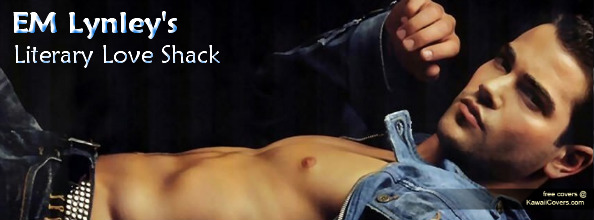[GLBT Fairy Tale Week] Jean Roberta Makes Fairy Tales Come True
Today’s guest is Jean Roberta, author of “Madame Blanche” which appears in the Rumpled Silk Sheets Anthology.
Are adult fairy tales a contradiction in terms? At one time, they were intended for audiences of all ages. In the nineteenth century, fairy tales became part of the new genre of “children’s literature.” In the twentieth century and beyond, most of us were brought up on Walt Disney versions of fairy tales.
Since literary erotica has become popular, there have been several anthologies of erotic fairy tales, some based on the old stories and some recently-invented. Sex and the supernatural just seem to go together. Most of us who were raised on sanitized versions of the old stories (Sleeping Beauty, Little Red Riding Hood) intuited something beneath the surface even when they were being read to us. What does the Prince really want from the sleeping princess? Why is the wolf so interested in eating a young girl instead of smaller animals? Why do the animals generally behave so much like human beings?
In traditional fairy tales, happy-ever-after love stories all end with marriage. Cinderella, in which a downtrodden young woman captures the heart of a prince, has been described as the basic model for heterosexual romances aimed at women. However, gay and lesbian readers have learned to insert themselves between the lines of traditional stories. Why couldn’t a trapped or lonely damsel be courted by another woman? Why couldn’t a male hero rescue a deserving young man?
When I read the call-for-submissions for Rumpled Silk Sheets, a collection of lesbian fairy tales, I wanted to write a story based on a lesser-known fairy tale than those made into animated movies. The English translations of the stories of Countess d’Aulnoy, who wrote in French in the 1600s, have elaborate plots full of magic spells, broken promises and animal characters. There is plenty of material there to work with.
“La Chatte Blanche” (The White Cat) by Countess d’Aulnoy is about a talking white cat in an enchanted castle who turns out to be a queen under a spell — no big surprise there. The prince who falls in love with her is one of three brothers who must compete for the throne of their father, the old King. Both the central characters have been deprived of their rightful power, which sounds like the traditional plight of women, especially those who would rather share their lives with other women than marry men for security.
Even the title of the story appealed to me, since one of my grandmothers was named Blanche, like the heroine of one of Chaucer’s tales (circa 1380). So the cat in my story is named Madame Blanche, French for Lady White. By the end of the story, Blanche has had all her kingdoms restored to her, and she gets to marry the person of her choice, a rare enough outcome even today.
In an imaginary world where anything can happen, it only seems logical that same-sex love would be given its due. If we can dream it, that’s the first step in changing reality.
 Jean Roberta at her fairy-tale wiccan wedding on October 30, 2010, when she legally married her partner of over 20 years, Mirtha Rivera. Visit her online at http://jean_roberta.livejournal.com
Jean Roberta at her fairy-tale wiccan wedding on October 30, 2010, when she legally married her partner of over 20 years, Mirtha Rivera. Visit her online at http://jean_roberta.livejournal.com
Rumpled Silk Sheets: Contributors include: Shanna Germain, Sunny Moraine, Vivica Lace, Kilt Kilpatrick, Michael Jones, GG Royale, Kenzie Mathews and Jean Roberta
Available from Ravenous Romance, Fictionwise, ARe, and Kindle



Whether fairy tales were originally meant for children I suppose can be debated–but I’m not surprised they work for adults. Aren’t they mostly about fears and desires? Overcoming obstacles, battling evil or rivals, triumphing over adversity? Perfect for erotica! (Here’s to moving same-sex love and marriage firmly into reality, though!)
Great post! I love how you researched the history of folktales so much. I was also surprised when I found out they were originally meant for adults mainly.
I love the fact you picked something that outside the norm. I think there are fabulous stories out there that are shadowed by the standard norms. Whenever you and bring something new and different to the table is fabulous!
I have always hated the fact that, though the Brothers Grimm basically revolutionized the short story form, they’ve been marginalized as children’s writers by most modern readers.